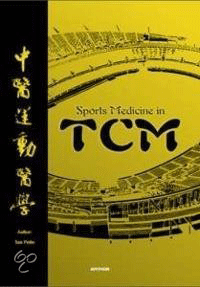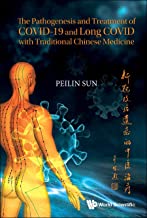Management of diabetes
Locatie/Venue
Inleiding/Introduction
Diabetes is a metabolic disorder affecting various nutrient substances, including sugar, fat, protein, water, and electrolytes. In December 2021, the International Diabetes Federation (IDF) released the 2021 Global Diabetes Map on their official website. According to the data, the number of adults with diabetes worldwide is projected to reach 537 million in 2021, impacting approximately one-tenth of the global adult population. This represents an increase of 74 million individuals compared to 2019, indicating a 16% rise. By 2025, it is expected that the prevalence of diabetes will further increase to 12.2%, with the number of cases reaching 783 million.
Effective blood sugar control is a crucial goal in diabetes treatment as it can help reduce and delay complications. However, data indicates that the risk factors for diabetes complications are multifaceted and extend beyond blood sugar levels. Such cases are frequently encountered in clinical practice, where blood sugar control may be satisfactory, even meeting the standard HbA1c levels, yet chronic complications such as cardiovascular and cerebrovascular diseases, diabetic foot problems, impotence, and frigidity persist. Similarly, some patients maintain satisfactory control of blood sugar, blood pressure, and blood lipids, but experience symptoms like fatigue, sweating, itchy skin, low mood, and a general feeling of illness throughout the day, making it challenging to maintain physical and mental well-being to enjoy work and life.
Traditional Chinese Medicine (TCM) has accumulated rich experience in the treatment of diabetes over the course of two thousand years, forming a unique theory with proven efficacy. Numerous studies have demonstrated the significant and long-lasting hypoglycemic effect of TCM.

Inhoud/Content
This seminar is divided into three parts:
- A general introduction to diabetes.
- Diabetes in TCM, and
- The management of diabetes complications.
Dr Sun Pei Lin is auteur van
|
|
|
|
Management of Post-Operative Pain with Acupuncture |
The Treatment of Pain with Chinese Herbs and Acupuncture E-Book |
|
|
|
|
Sports medicine in TCM |
Bi-Syndromes or Rheumatic Disorders Treated By Traditional Chinese Medicine |
|
|
|
|
Understanding, Managing and Treating Female Infertility with Chinese Medicine |
The Treatment of Pain with Chinese Herbs and Acupuncture |
|
|
|
|
The Pathogenesis and Treatment of Covid-19 and Long Covid With Traditional Chinese Medicine |
Doelstellingen/Objectives
-
De opleiding is gericht op het aanleren van technische & exact-wetenschappelijke kennis en is van toepassing zoals bepaald binnen de Zorg STEM-opleidingen
- De opleiding is gericht op het aanleren van technische kennis en & exact-wetenschappelijke kennis en de toepassing ervan in het Postgraduaat Acupunctuur en in Postgraduaat Chinese Gezondheidszorg, Hoger Onderwijs, gepubliceerd op onderwijskiezer.be en/of als bijscholing hiervan
The lecture covers the mechanisms of diabetes according to TCM, along with its diagnosis and treatment using acupuncture based on syndrome differentiation. Complications addressed in the seminar include diabetes hyperuricemia, diabetic kidney disease, diabetic foot problems, and pruritus, among others.
Toelatingsvoorwaarden/conditions of admission
-
Acupuncturist
-
Student acupunctuur PGAC 2 of 3 bij ICZO vzw
Datum/Data
- zaterdag 01 juni 2024
Lesuren/Timing
- 09.30 -17.00 uur
Docent

- Acupuncturist & herbalist
- Chinese doctor in acupuncture & TCM - Nanjing TCM University
- Guest Professor of Nanjing Universty of Chinese Medicine
-
Auteur van diverse TCM-boeken
Accreditaties/Accreditation
Het aantal accreditatiepunten verschilt per beroepsverenging en wordt best nagezien bij de betreffende organisatie
Acupunctuur Vlaanderen, BAF, LVNT, NVA , NWP ( punten), ZHONG ( punten)
Studiepunten/Credits
0.5 = Een studiepunt is een binnen de Vlaamse Gemeenschap aanvaarde internationale eenheid die overeenstemt met ten minste 25 en ten hoogste 30 uren voorgeschreven onderwijs-, leer- en examenactiviteiten en waarmee de studiebelasting van elke opleiding of elk opleidingsonderdeel wordt uitgedrukt
Cursusgeld/Fee
200 €
KMO-P
Kom je in aanmerking? zie https://www.iczo.be/nl/kmo-portefeuille
Voertaal/Language
Nederlands
Diversen/Miscellaneous
-
Doorlopende coffee breaks (koffie, thee, water) + broodjeslunch (broodjes, soep, saladebar, koffie, thee en water, ....)
-
Gratis ondergrondse parking voor Uw wagen
-
De organisatie behoudt zich het recht voor om eventuele wijzigingen in het programma en planning aan te brengen.







